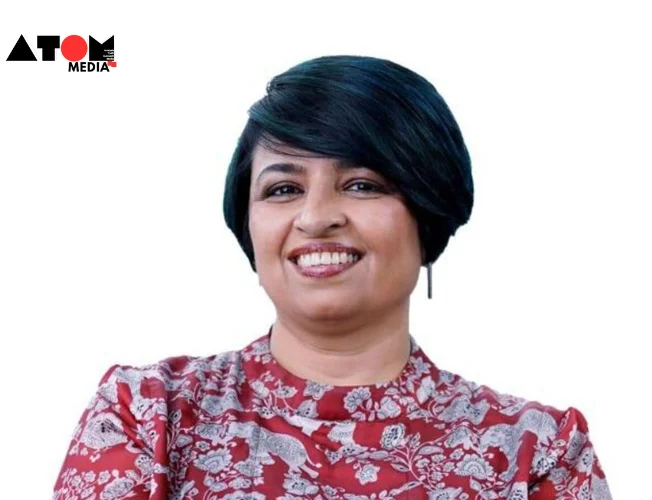As India seeks to strengthen its micro, small, and medium enterprises (MSMEs), Hardika Shah, the founder and CEO of Kinara Capital, is making significant strides in bridging the credit gap that has long hindered these vital businesses. Recognized in the Woman Ahead category at The Economic Times Startup Awards 2024, Shah is focusing on expanding Kinara’s presence in India’s manufacturing regions, aiming to enhance access to credit for MSMEs.
A Vision Born from Personal Experience
Hardika Shah’s journey began in the suburb of Mulund in Mumbai, where she witnessed her mother running a small shop. This early exposure instilled in her a deep understanding of the challenges small businesses face in securing financing. With over two decades of experience as a technology consultant in cities such as Chicago, San Francisco, Singapore, and Sydney, she returned to India with a vision: to leverage technology to address the financial needs of MSMEs.
In 2011, Shah founded Kinara Capital, a company dedicated to providing unsecured loans specifically tailored for micro, small, and medium enterprises. Establishing the business presented initial challenges, particularly due to high rental costs in Mumbai, prompting her to set up operations in Bengaluru. “Rents in Mumbai then were at least 48% higher than in other cities, so I evaluated Chennai, Bangalore, and Hyderabad and chose this city because of its mix of microfinance, banking, and technology talent,” Shah explained in a recent interview.
Expanding Reach and Achieving Growth
Today, Kinara Capital has established a physical presence in over 100 cities, targeting regions that account for approximately 70% of India’s manufacturing output. With plans to surpass the $100 million revenue mark this year, the company is deepening its reach in existing markets and forging strategic partnerships to provide tailored credit support to more MSMEs.
“We are strengthening our partnerships to provide tailored credit support through embedded financing,” Shah noted. Kinara has already disbursed over ₹100 crore through collaborations across various industries, addressing the significant credit gap faced by India’s MSME sector, estimated at $530 billion according to an EY report.
Since its inception, Kinara has supported over 82,000 MSMEs across sectors such as manufacturing, construction, and building materials. The company is a key player in the financial landscape, having achieved its ninth consecutive profitable year in fiscal 2024 with a net profit of ₹62 crore.
Unsecured Lending: A Growing Trend
“Unsecured business lending has grown at 30%,” Shah remarked, highlighting how non-banking financial companies (NBFCs) are capturing a larger share of the market by directly lending to underserved customers. “Thanks to our ability to navigate last-mile distribution and adopt alternative underwriting models compared to banks, even private banks are benefiting from partnerships with NBFCs through co-lending arrangements.”
Kinara Capital offers collateral-free business loans ranging from ₹5,000 to ₹30 lakh. As of July 2024, the company’s loan book stood at ₹3,172 crore, reflecting a 26% year-on-year growth. While no immovable collateral is required, Kinara does hypothecate assets like stock and machinery, providing security for its loans.
Looking ahead, Kinara aims to surpass $1 billion in cumulative disbursements. “We are focused on expanding collaborations and reaching a larger pool of underserved MSMEs,” Shah said. The company is also advocating for MSMEs to benefit from green financing and WaSH (water, sanitation, and hygiene) financing, supporting sectors that provide essential products and services related to climate change.
Empowering Women Entrepreneurs
Kinara Capital also runs the HerVikas program, which supports women-led MSMEs with customized financing solutions. This initiative offers benefits such as upfront discounts, a two-month repayment holiday, and reduced processing fees. The program has already disbursed over ₹700 crore, with an additional allocation of ₹500 crore, and cumulative disbursements are projected to exceed ₹1,200 crore by the end of this fiscal year.
The Role of Technology in Financial Solutions
Shah emphasizes the crucial role of technology in Kinara’s operations. “Even 10-12 years ago, before Aadhaar, UPI, or India Stack, we believed that technology would be a key differentiator, helping us understand data better and improve underwriting over time,” she stated.
The company currently operates 133 branches with over 1,600 field staff, providing doorstep services and omnichannel customer support in regional languages. As customer behavior shifts towards digital channels, Kinara has adapted accordingly; today, 10-15% of disbursements are sourced digitally, a significant change from none four years ago.
Navigating Regulatory Changes
In light of increased regulatory scrutiny in India’s digital lending sector, many fintech companies have had to adjust their business models or rethink partnerships. While these changes have raised operational costs for some, Shah believes the new guidelines have provided essential clarity.
“Everyone now understands the boundaries of what First Loss Default Guarantees (FLDG) we can or cannot offer,” she said. “Overall, the regulatory landscape is evolving to keep pace with innovation, ensuring consumer protection and stability in the financial ecosystem.”
Conclusion
Hardika Shah’s leadership at Kinara Capital illustrates a remarkable commitment to empowering India’s MSMEs through innovative credit solutions. By leveraging technology, forming strategic partnerships, and focusing on underserved sectors, Kinara is poised to make a significant impact on the landscape of small business financing in India.





